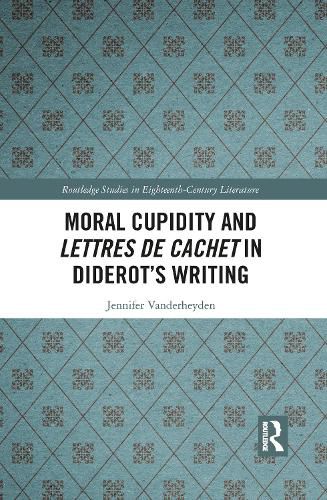Readings Newsletter
Become a Readings Member to make your shopping experience even easier.
Sign in or sign up for free!
You’re not far away from qualifying for FREE standard shipping within Australia
You’ve qualified for FREE standard shipping within Australia
The cart is loading…






This volume explores the influence of the lettre de cachet on both Diderot’s personal life and his works, beginning with an examination of Diderot’s experience as recipient of two such arrest warrants, followed by an analysis of his references to these warrants in three of his fictional works, Le Pere de famille, Jacques le fataliste and Est-il bon? Est-il mechant?. A scrutiny of Diderot’s memoire/lettre novel La Religieuse proposes that, on the basis of moral cupidity, or self-gain, Madame Simonin sends her daughter Suzanne two veiled lettres de cachet that demand her confinement to a convent. The exploration of a fascinating real-life case of Henriette-Emilie de Bautru, a young comtesse whose mother confined her to a convent as a result of a lettre de cachet also based on motives of greed, leads to an examination of the similarities between Suzanne and the Comtesse in terms of their illegitimacy, questioning of authority and subsequent rebellion. A consideration of writing and communication in La Religieuse as they relate to this rebellion leads to an investigation of Diderot’s admiration of the mystery of female genius and artistic creativity as discussed in his essay Sur les femmes. The works of Julia Kristeva, especially her Post-Scriptum addressed to Diderot at the end of her work Therese mon amour: Therese d'Avila, serve as a theoretical basis for an interpretation of Suzanne’s experience as victim of a lettre de cachet and her search for a psychological rebirth of her etre cache.
$9.00 standard shipping within Australia
FREE standard shipping within Australia for orders over $100.00
Express & International shipping calculated at checkout
This volume explores the influence of the lettre de cachet on both Diderot’s personal life and his works, beginning with an examination of Diderot’s experience as recipient of two such arrest warrants, followed by an analysis of his references to these warrants in three of his fictional works, Le Pere de famille, Jacques le fataliste and Est-il bon? Est-il mechant?. A scrutiny of Diderot’s memoire/lettre novel La Religieuse proposes that, on the basis of moral cupidity, or self-gain, Madame Simonin sends her daughter Suzanne two veiled lettres de cachet that demand her confinement to a convent. The exploration of a fascinating real-life case of Henriette-Emilie de Bautru, a young comtesse whose mother confined her to a convent as a result of a lettre de cachet also based on motives of greed, leads to an examination of the similarities between Suzanne and the Comtesse in terms of their illegitimacy, questioning of authority and subsequent rebellion. A consideration of writing and communication in La Religieuse as they relate to this rebellion leads to an investigation of Diderot’s admiration of the mystery of female genius and artistic creativity as discussed in his essay Sur les femmes. The works of Julia Kristeva, especially her Post-Scriptum addressed to Diderot at the end of her work Therese mon amour: Therese d'Avila, serve as a theoretical basis for an interpretation of Suzanne’s experience as victim of a lettre de cachet and her search for a psychological rebirth of her etre cache.